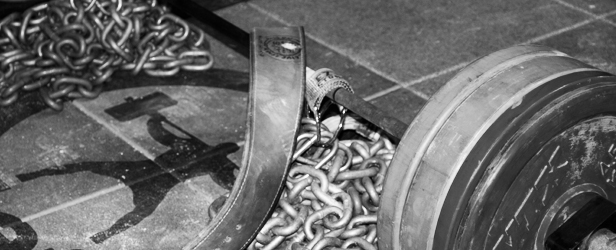
1. Showing Up and Being Consistent Isn't Enough
We have read "Be Consistent" thousands of times, but this is a bit of a misconception. I know many lifters who lacked consistency but still made it to the top of their sport. I also know of thousands of lifters who are extremely consistent and fail to make progress. This begs the question: Is it better to give a half-assed effort all of the time, or is it better to give all you have all of the time?
Yes, genetics and other factors play a role, but if you think that all you have to do is be consistent and do so for a long time, you are mistaken. It is a factor, but unless you have a solid plan and put in effort, the gains will not come.
2. It Get's Easy Once You Reach "X"
It doesn't get easier the bigger or stronger you become. It actually gets harder. It gets a hell of a lot harder.
Once you get there you need to:
1. Keep the gains
2. Build on those existing gains
3. Minimize the damage
4. Keep from getting injured
5. Find the best environment
As you climb the ladder of training success, all the major things become a given. You will show up, you will do the work, and you will have a plan. However, this is when the minor things begin to factor in big time.
As your training age increases, so does your inability to recover. The wear and tear begin to add up and technique becomes even more important because your strength is higher and your body is more beat up. All of the things the younger guys take for granted (nutrition, water, rest, recovery, stress, volume, workload, intensity, and more) can no longer be taken for granted. Therefore, you need to be warmed up before hitting big weights, you need to make sure you are hydrated, you need to be rested and recovered, you need to better control all outside stressors, and have a good handle on your programing.
A great example:
If you are a lifter with 15 years under your belt, you can't deload by taking one to two weeks off. Now, if you are a beginner and you do this, you will feel great and be able to pick right back up where you left off. If you are an advanced lifter, you will feel like shit and be more beat up every day. After two weeks, you will feel like a cripple. Thus, the way you deload becomes critical for an advanced lifter while, on the other hand, a beginner can get away with just about anything.
Solution: There are several ways to do this correctly, but the one method that I have had the most success with is keeping the volume the same but dropping the intensity.
3. There Is No Perfect Program
Everyone wants the magic sauce. Well, it doesn't exist. Granted, many people will tell you that it does, but it doesn't. The simple fact, honestly and truly, is that nobody has it figured out.
Let me put it this way: Most training science is based on the super-compensation model. There are thousands of studies that support this, but this works differently based on your aerobic base, anaerobic base, training history, hormones, mental state, and even your vital signs. So, here we have what is supposed to be known as an absolute...but it's influenced by several (if not hundreds of) things. This is the goal of the entire training process—how to use and influence this model. I know this is an extreme example, but do we know anything with 100% certainty? How many "proven" absolutes have later been proven incorrect throughout history? A-L-O-T!
My point is that it all comes down to our best educated and experienced guess.
I will be the first to point out that there are people whose best guess sucks because it is only based on a couple of variables and experiences. There are others, however, who have spent their lives under the bar. Others who have spent countless hours coaching, studying how the body works, reading the research, and talking with other great coaches who have a far better grasp of the process than someone else.
All of the top coaches I know and respect agree that the best program is the one that works for You. Meaning, it fits your needs, goals, situation, strengths, and weaknesses. At the beginner and intermediate level, this can be achieved with a vast array of programming. The higher you rise, though, the more specific it needs to become.
At the end of the day, it is your responsibility to determine if what you are doing is optimal and effective. If you don't know this, then find someone who can help you.










